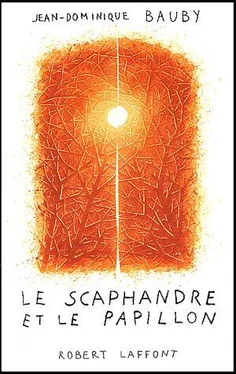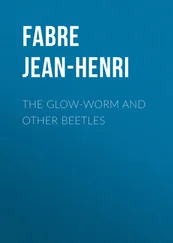And I have to admit that at times I do not know anymore.
The last time I saw my father, I shaved him. It was the week of my stroke. He was unwell, so I had spent the night at his small apartment near the Tuileries gardens in Paris. In the morning, after bringing him a cup of milky tea, I decided to rid him of his few days' growth of beard. The scene has remained engraved in my memory.
Hunched in the red-upholstered armchair where he sifts through the day's newspapers, my dad bravely endures the rasp of the razor attacking his loose skin. I wrap a big towel around his shriveled neck, daub thick lather over his face, and do my best not to irritate his skin, dotted here and there with small dilated capillaries. From age and fatigue, his eyes have sunk deep into their sockets, and his nose looks too prominent for his emaciated features. But, still flaunting the plume of hair—now snow white—that has always crowned his tall frame, he has lost none of his splendor.
All around us, a lifetime's clutter has accumulated; his room calls to mind one of those old persons' attics whose secrets only they can know—a confusion of old magazines, records no longer played, miscellaneous objects. Photos from all the ages of man have been stuck into the frame of a large mirror. There is Dad, wearing a sailor suit and playing with a hoop before the Great War; my eight-year-old daughter in riding gear; and a black-and-white photo of myself on a miniature-golf course. I was eleven, my ears protruded, and I looked like a somewhat simpleminded schoolboy. Mortifying to realize that at that age I was already a confirmed dunce.
I complete my barber's duties by splashing my father with his favorite aftershave lotion. Then we say goodbye; this time, for once, he neglects to mention the letter in his writing desk where his last wishes are set out. We have not seen each other since. I cannot quit my seaside confinement. And he can no longer descend the magnificent staircase of his apartment building on his ninety-two-year-old legs. We are both locked-in cases, each in his own way: myself in my carcass, my father in his fourth-floor apartment. Now I am the one they shave every morning, and I often think of him while a nurse's aide laboriously scrapes my cheeks with a week-old blade. I hope that I was a more attentive Figaro.
Every now and then he calls, and I listen to his affectionate voice, which quivers a little in the receiver they hold to my ear. It cannot be easy for him to speak to a son who, as he well knows, will never reply. He also sent me the photo of me at the miniature-golf course. At first I did not understand why. It would have remained a mystery had someone not thought to look at the back of the print. Suddenly, in my own personal movie theater, the forgotten footage of a spring weekend began to unroll, when my parents and I had gone to take the air in a windy and not very sparkling seaside town. In his strong, angular handwriting, Dad had simply noted: Berck-sur-Mer, April 1963 .
If you asked readers which of Alexandre Dumas's literary heroes they would like to be, they would pick D'Artagnan or Edmond Dantès. No one would dream of choosing Noirtier de Villefort, a somewhat sinister character in The Count of Monte Cristo . Described by Dumas as a living mummy, a man three-quarters of the way into the grave, this profoundly handicapped creature summons up not dreams but shudders. The mute and powerless possessor of the most terrible secrets, he spends his life slumped in a wheelchair, able to communicate only by blinking his eye: one blink means yes; two means no. In fact, dear Grandpapa Noirtier, as his granddaughter affectionately calls him, is literature's first—and so far only—case of locked-in syndrome.
As soon as my mind was clear of the thick fog with which my stroke had shrouded it, I began to think a lot about Grandpapa Noirtier. I had just reread The Count of Monte Cristo , and now here I was back in the heart of the book, and in the worst of circumstances. Ironic—but that rereading had not been purely by chance. I had been toying with the idea of writing a modern, doubtless iconoclastic, version of the Dumas novel. Vengeance, of course, remained the driving force of the action, but the plot took place in our era, and Monte Cristo was a woman.
So I did not have time to commit this crime of lèse-majesté. As a punishment, I would have preferred to be transformed into M. Danglars, Franz d'Épinay, the Abbé Faria, or, at the very least, to copy out one thousand times: “I must not tamper with masterpieces.” But the gods of literature and neurology decided otherwise.
Some evenings I have the impression that Grandpapa Noirtier patrols our corridors in a century-old wheelchair sadly in need of a drop of oil. To foil the decrees of fate, I am now planning a vast saga in which the key witness is not a paralytic but a runner. You never know. Perhaps it will work.
As a rule, I do not recall my dreams. At the approach of day their plots inevitably fade. So why did last December's dreams etch themselves into my memory with the precision of a laser beam? Perhaps that is how it is with coma. Since you never return to reality, your dreams don't have the luxury of evaporating. Instead they pile up, one upon another, to form a long ongoing pageant whose episodes recur with the insistence of a soap opera. This evening, one such episode has come back to me.
In my dream, thick snow is falling. It lies a foot deep over the automobile graveyard my best friend and I are walking through, numb with cold. For three days, Bernard and I have been trying to get back to a France paralyzed by a general strike. We ended up in an Italian winter-sports resort, where we found a small local train heading for Nice. But at the French border a strikers' picket line interrupted our journey and bundled us out of the train and into this desolate landscape, without overcoats and wearing thin city shoes. A lofty overpass straddles the junkyard, as if vehicles falling from the bridge one hundred fifty feet above our heads have piled up here, one on top of another. Bernard and I have an appointment with an influential Italian businessman who has installed his headquarters in one massive pillar of the viaduct, far from prying eyes. We knock at a yellow steel door with the sign “Danger: High Voltage” and an instruction chart for treating electric shock. The door opens. The entrance is reminiscent of a garment-district outlet: jackets on a mobile rack, piles of trousers, boxes of shirts rising to the ceiling. I recognize the surly watchman who admits us by his shock of hair: Radovan Karadzic, leader of the Bosnian Serbs. “My friend is having trouble breathing,” Bernard tells him. Laying down his machine gun, Karadzic performs a tracheotomy upon me on a hastily cleared table. Then we walk down ornate glass stairs to a study in the cellar. Its walls are lined with tan leather; deep armchairs and muted lighting give it the feel of a nightclub. Bernard confers with the owner, a clone of Fiat's elegant former chairman Gianni Agnelli, while a hostess with a Lebanese accent sits me down at a small bar. Instead of glasses and bottles, rows of plastic tubes dangle floorward like oxygen masks in an aircraft in distress. A barman motions me to put one in my mouth. I comply, and an amber ginger-flavored fluid begins to flow, flooding me with warmth from my toes to the roots of my hair. After a while I want to stop drinking and get down off my stool. Yet I continue to swallow, unable to make the slightest move. I look frantically at the barman to attract his attention. He responds with an enigmatic smile. Around me, voices and faces become distorted. Bernard says something to me, but the sound emerging in slow motion from his mouth is incomprehensible. Instead I hear Ravel's Bolero . I have been completely drugged.
Читать дальше












